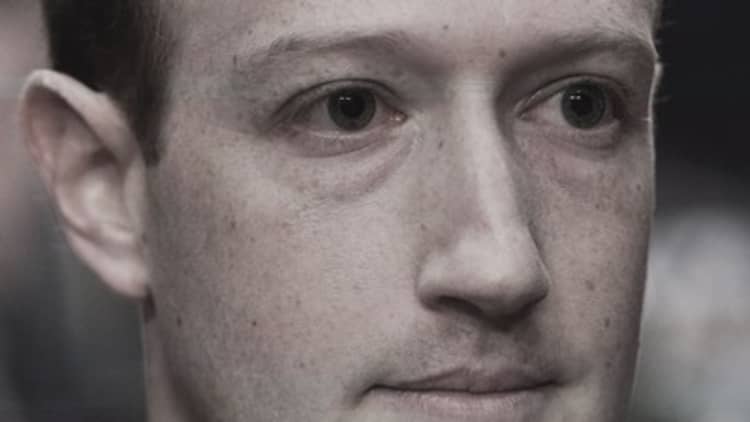Democratic presidential candidate Joe Biden wants to get rid of the legal protection that has shielded social media companies including Facebook from liability for users' posts.
The former vice president's stance, presented in an interview with The New York Times editorial board, is more extreme than that of other lawmakers who have confronted tech executives about the legal protection from Section 230 of the Communications Decency Act.
"Section 230 should be revoked, immediately should be revoked, number one. For Zuckerberg and other platforms," Biden said in the interview published Friday.
The bill became law in the mid-1990s to help still-nascent tech firms avoid being bogged down in legal battles. But as tech companies have amassed more power and billions of dollars, many lawmakers across the political spectrum along with Attorney General William Barr, agree that some reforms of the law and its enforcement are likely warranted.
But revoking the clause in its entirety would have major implications for tech platforms and may still fail to produce some of the desired outcomes. Section 230 allows for tech companies to take "good faith" measures to moderate content on their platforms, meaning they can take down content they consider violent, obscene or harassing without fear of legal retribution.
"Section 230 obviously benefits not just Facebook," Facebook spokesperson Andy Stone told CNBC. "It's not just foundational to the internet, it's what allows The New York Times to host reader comments on their websites."
Stone also pointed to a Facebook executive's comments on the subject at a hearing on digital deception last week. Monika Bickert, Facebook's vice president of global policy management told Congress, "Section 230 is an important part of my team being able to do what we do so — yes, it gives us the ability to proactively look for abuse and remove it."
Biden's stance on Section 230 will likely be met with similar criticism in Silicon Valley to that lodged at Sen. Josh Hawley, R-Mo., after he introduced legislation in June that would tie the protections of Section 230 to voluntary audits of the tech companies that prove their practices are "politically neutral." Trade groups representing tech firms including Facebook, Twitter and Google said at the time that Hawley's bill would make it much more difficult for tech companies to remove reprehensible content.
Biden's comments on Section 230 are more pronounced than those of his Democratic rivals. Asked by Vox last year how platforms should be held responsible for hate speech or misinformation, Sen. Bernie Sanders, D-Vt., for example, said he would "work with experts and advocates to ensure that these large, profitable corporations are held responsible when dangerous activity occurs on their watch, while protecting the fundamental right of free speech in this country and making sure right-wing groups don't abuse regulation to advance their agenda."
Read the full interview at The New York Times.
WATCH: Why Facebook's business model is only now coming under fire



